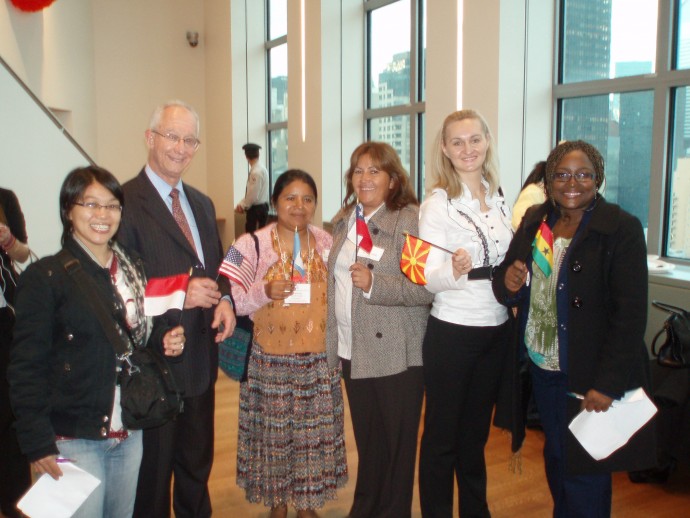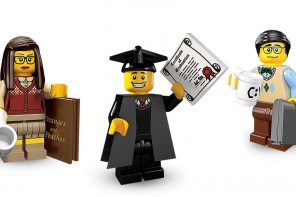On a sunny June day in Columbus, Ohio, I read my last remaining student papers and exams, turned in final grades, and wished some colleagues and students a good break. It was a day much like other end-of-semester days—except that I didn’t know if I would be coming back to campus. The next day I packed the car and drove to Washington, DC. The day after that, standing alongside other brand-new trainees, I raised my right hand and was sworn in as a Foreign Service officer (FSO).
Over the next twenty-two years, I served at US embassies in Indonesia, Ghana, Guatemala, Macedonia, and Chile, as well as in Washington, DC, and New York City. I’d love to tell you about the places I went, the work I did as a public-diplomacy officer, the many interesting people I met, and what the Foreign Service experience was like for my family. For now, I’ll just note that things worked out extremely well.
It was an abrupt transition. At first I wasn’t sure if my academic background (mainly in Spanish literature and special education) would enable me to adapt to such a different working environment and to perform as capably as others. My new colleagues in the Foreign Service had impressive achievements and job experiences. But as time passed, I found that my years as a student and faculty member had provided a surprising amount of useful preparation.
If your studies have focused on language and literature, I can think of several ways in which your knowledge, experiences, and personal qualities could help you fulfill the responsibilities of an FSO. Here are some that come to mind:
– Communication: Whether it’s drafting remarks for the ambassador on the Martin Luther King, Jr., holiday, nominating a women’s-rights advocate for a three-week project in the US with the International Visitor Leadership Program, speaking to university students about global health issues, or explaining how our electoral college system works, it’s important to convey information in a clear, engaging manner, to remain open to divergent points of view, and to be a good listener. My move from academic to diplomatic communication wasn’t seamless. An early supervisor considered my writing style too “professorial” and wordy. He repeatedly called for “brevity and clarity” and told me to get to the key points more quickly. This wasn’t always pleasant, but it helped me become a better writer. Nearly everything FSOs do, inside and outside the embassy, involves communication in some form, often with the intent of sparking meaningful dialogues with people and groups in the host country. Creative uses of technology and social media have broadened our outreach to new and diverse audiences, yet direct, person-to-person contacts remain a crucial element of diplomacy.
– Choosing words carefully: Proficiency in a foreign language and the ability to acquire new languages are of course valuable. Beyond that, your background in language and literature has likely enhanced your awareness of nuances and fine shades of meaning. In international diplomacy, even a single word can have far-reaching consequences. Reportedly, the most significant global climate-change agreement in history was recently approved only after a “shall” was changed back to a “should.”
– Organization, time management, teamwork: If you have completed a master’s thesis or doctoral dissertation, you’ve shown the ability to conceive, develop, and revise a concept; to accommodate the suggestions of advisors and committee members; to negotiate mutually agreeable outcomes; and to carry a complex project to completion. All these skills are relevant to the work done by FSOs. In their own ways, academic departments and PhD committees are teams, and effective teamwork is one of the most essential qualities for successful, fulfilling careers in the Foreign Service.
– Intellectual curiosity: People with wide-ranging interests, open to learning something new and different, do well in the Foreign Service. Did you ever make a special effort to visit the home of a beloved writer? Or take a course outside your major area just because the topic looked intriguing? Do you keep up with developments in US and international politics, economics, technology, sports, culture? First-rate FSOs tend to be inquisitive and adaptable, able to shift quickly from one theme or task to another. I once spent a month in an embassy’s economic section and prepared a report on fluctuations in cement prices. This was far outside my comfort zone, but I learned some interesting things about the cement industry and its importance. Many people in the State Department, USAID, and other foreign-affairs agencies have unique experiences and in-depth knowledge of highly specialized fields, and I almost always found them willing to share their expertise with an interested newcomer.
– Familiarity with US higher education: While overseas, I felt an ongoing tie to academia. Getting to know American Fulbright scholars, visiting them at their host institutions, and taking part in the process of selecting foreign-scholar candidates were among the best parts of my job. People from all over the world aspire to study in the United States (through various programs, not just Fulbright), and our colleges and universities are keenly interested in making their campuses more global. Embassies often host visits by American students and faculty and university leaders, and the State Department supports a network of EducationUSA advising centers. But our higher education system is vast, distinctive, and generally not well understood. Knowing how graduate education really works nowadays, you can offer insight into such aspects of higher education as the importance of finding a department that’s well matched to the student’s particular interests and goals, and you can help foreign scholars appreciate the fact that rigorous, high-quality graduate programs can be found at universities throughout the US, not just at a handful of prestigious institutions.
Of course, the Foreign Service isn’t for everyone. Moving from one post to another every few years is exciting in some ways but problematic in others. Spouses and partners with careers of their own may need to make difficult choices, and children’s periodic moves from one school to another don’t always go smoothly. Service in countries where conditions are unstable, impoverished, or unhealthful is a reality for most FSOs over the course of their careers. And, as we have recently seen, tragic and unpredictable events can occur anywhere in the world.
As a student and professor, I had memorable experiences and wonderful colleagues. I felt at home in the campus environment, and it was hard to leave. But for me the transition from academia to diplomacy came at the right time. There is nothing quite like living and working in another country as an official representative of the United States, and the experience proved to be life-changing. Would this type of move be a positive one for you? I can’t say. What I can tell you is that Foreign Service work is always challenging and continually evolving. To address the many critical issues facing our country and the world, the Foreign Service needs bright, innovative, motivated people from a wide array of academic and experiential backgrounds, language and literature doubtless among them. If you decide to make such a transition, you might well change the world a little—and also be changed by it.
Michael D. Orlansky earned a bachelor’s degree in Spanish literature at Yale University, a master’s degree in special education at Boston College, and a PhD in education at the University of Idaho. After teaching at the Perkins School for the Blind in Massachusetts and serving in the US Air Force, he was a professor of special education at the University of Virginia, for five years, and then at the Ohio State University, for seven years. He also spent a semester as a Fulbright lecturer at the University of Zagreb. He was a Foreign Service officer from 1989 until 2011. Most of his assignments were as a public-diplomacy officer with responsibilities for public affairs, educational and cultural programs, and international exchanges. He now lives in Burlington, Vermont, and volunteers with several community organizations.






